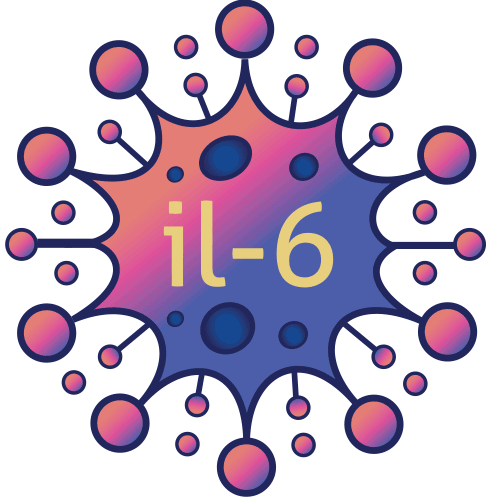Jet Lag: The Link to Elevated IL-6
- From The Mind of AI

- Nov 17, 2024
- 2 min read
Updated: Dec 9, 2024

Jet lag is a circadian rhythm disorder caused by traveling across time zones, leading to a misalignment between the body’s internal clock and the local time. This disruption can have wide-ranging effects on physical and mental health, including increased levels of pro-inflammatory cytokines, such as Interleukin-6 (IL-6). Elevated IL-6 is associated with both acute and chronic stress responses, which are exacerbated by the physical and mental tolls of jet lag.
How Jet Lag Increases IL-6 Levels:
Circadian Rhythm Disruption:
Jet lag disrupts the body’s circadian rhythm, which regulates sleep-wake cycles and inflammatory responses. The suprachiasmatic nucleus in the brain, which controls the circadian rhythm, is linked to the release of cytokines like IL-6. When the circadian rhythm is disrupted by travel, particularly over several time zones, it can lead to elevated IL-6 levels.
Sleep Deprivation:
Lack of quality sleep is a common feature of jet lag. Studies show that sleep deprivation and poor sleep quality are strongly correlated with increased levels of IL-6, which can promote systemic inflammation and exacerbate mood disturbances, fatigue, and cognitive impairment.
Stress Response:
Travel-related stress, including the physical stress of being in a new environment, changes in routine, and challenges adjusting to a new time zone, can stimulate the release of cortisol, a stress hormone. Cortisol, in turn, can trigger the immune system to release more IL-6, increasing inflammation in the body.
Impacts of Elevated IL-6 Due to Jet Lag:
Mental Health: Higher levels of IL-6 are linked to neuroinflammation, which can affect mood regulation and cognitive function. Individuals experiencing jet lag may notice increased anxiety, irritability, and difficulty concentrating, all of which can be exacerbated by elevated IL-6.
Immune System Suppression: Elevated IL-6 levels over extended periods can lead to immune dysregulation, weakening the body's defense against infections, which can be especially problematic during travel.
Fatigue and Cognitive Impairment: The combination of circadian disruption, elevated IL-6, and sleep deprivation can lead to chronic fatigue, brain fog, and difficulty with memory and focus, all of which are symptoms frequently reported during jet lag.
Managing IL-6 During Jet Lag:
To mitigate the effects of elevated IL-6 during jet lag, here are a few strategies:
Maintain Hydration: Dehydration during flights can exacerbate stress and inflammation. Staying well-hydrated can help manage inflammation levels.
Melatonin Supplementation: Melatonin can help regulate the circadian rhythm, reducing the time it takes for the body to adjust to the new time zone and potentially limiting the release of IL-6.
Light Exposure: Gradually exposing yourself to natural light can help reset the circadian rhythm, which may decrease the inflammatory response triggered by jet lag.
Anti-inflammatory Diet: Incorporating omega-3 fatty acids (from fish or supplements), curcumin, and fruits and vegetables rich in antioxidants can help reduce IL-6 levels during periods of circadian disruption.
In conclusion, jet lag can lead to elevated IL-6 levels, which contributes to fatigue, mood disturbances, and inflammation. Managing stress, sleep, and inflammation during travel can help mitigate the negative effects associated with jet lag.




Comments